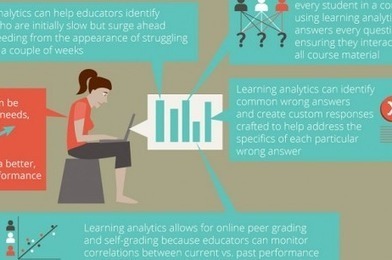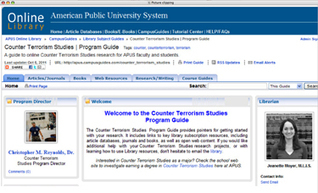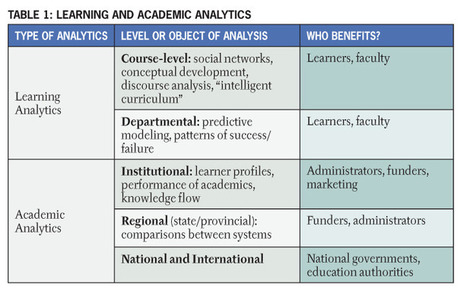 Your new post is loading...
 Your new post is loading...

|
Scooped by
Kim Flintoff
March 12, 2013 12:35 AM
|
Right now, what we’re trying to do is a little like trying to conduct physics research before somebody has invented calculus. You can do some things around the edges, but you can’t describe the really important hypotheses about causes and effects in learning situations with any precision. And if you can’t describe them with precision, then you can’t test them, and you certainly can’t get a machine to understand them.

|
Scooped by
Peter Mellow
March 7, 2013 5:33 PM
|
In an effort to address anticipated needs in big data analysis, Columbia University will launch online versions of its Master of Arts in Statistics and Master of Science in Actuarial Science programs.

|
Rescooped by
Peter Mellow
from Educación a Distancia y TIC
February 20, 2013 9:04 PM
|
The Horizon Report showcases a number of different examples of institutions that are using learning analytics in different ways.
Via LGA

|
Scooped by
Peter Mellow
February 4, 2013 4:08 PM
|

|
Scooped by
Kim Flintoff
January 22, 2013 7:42 PM
|
If you are instead trying to educate a broader spectrum of the population, including elite students, and you aren't using analytics, you won't know what's going on.

|
Scooped by
Kim Flintoff
December 17, 2012 8:03 PM
|
Part 7 of my Top Ed-Tech Trends of 2012 series
I chose “data” as one of the top trends of 2011, and the opening line of that article reads “If data was an important trend for 2011, I predict it will be even more so in 2012.” Indeed. There’s a great deal that happened in 2012 that’s a continuation of what we saw last year — enough that I could probably just copy-and-paste from the article I wrote back then:

|
Scooped by
Kim Flintoff
December 5, 2012 6:07 PM
|
The Open Academic Analytics Initiative, an NGLC grant recipient, is seeking to engender an ecosystem for learning analytics based on open source technologies.

|
Scooped by
Kim Flintoff
November 28, 2012 2:34 AM
|
Although states are doing a masterful job of accumulating data and integrating data sources to support education improvement, according to a new report, the next part of the job may be their toughest yet: teaching people how to use the data.

|
Scooped by
Peter Mellow
November 11, 2012 7:08 PM
|
About AltMetrics Cricketers like statistics, as we know from the long-standing popularity of Wisden, the cricketing almanack which was first published in 1854. Researchers have similar interests wi...

|
Scooped by
Kim Flintoff
November 8, 2012 11:47 PM
|
Denver — Data mining is creeping into every aspect of student life—classrooms, advising, socializing. Now it’s hitting textbooks, too. CourseSmart, which sells digital versions of textbooks by big publishers, announced on Wednesday a new tool to help professors and others measure students’ engagement with electronic course materials. When students use print textbooks, professors can’t track their reading. But as learning shifts online, everything students do in digital spaces can be monitored, including the intimate details of their reading habits. KF: See ryanbretag's comments on this at: http://wp.me/pXQaZ-Wt

|
Scooped by
Kim Flintoff
October 23, 2012 1:18 AM
|
So where will online growth come from? A report last week from Moody’s indicated that massive open online courses (MOOCs) represent a “pivotal development” in higher education and could revolutionize the industry. A ton of educational innovations are coming down the pike as a result of big data, which effectively turns “learning” – heretofore somewhat ineffable – into a living, breathing body that can be monitored: closer to medicine than education has ever been. It is for this reason – the “massive” element – that MOOCs may prove to be important. With mass comes big data. And with big data comes better product and engagement of traditional age students. But massive courses aren’t the only path to big data. Smaller courses with much higher completion rates could prove to be a better source of data. Regardless, in the coming years education research will allow us to check the two hard boxes: product and engagement of traditional age students. Real growth for online education – what we call Online Education 2.0 – will come when we’re firing on all four cylinders, not just two.

|
Rescooped by
Kim Flintoff
from Infographics for education
September 13, 2012 4:33 AM
|
Very nice Infographic from OpenColleges about learning analytics. “When you hear “analytic,” you might think of...
Via S. Lustenhouwer

|
Scooped by
Kim Flintoff
August 25, 2012 9:32 AM
|
Data in the classroom is not new, it's just that new tools and software have begun to harness all the information and digest it. Here's a primary on what's next.
|

|
Scooped by
Peter Mellow
March 10, 2013 11:24 PM
|
As a self-professed skeptic of learning analytics (I'm still not totally convinced they are great for the learner...even if they might be a great tool for educ…

|
Rescooped by
Peter Mellow
from Learning with MOOCs
February 24, 2013 8:05 PM
|
How can Learning Analytics be used to bring about the true revolution traditionally assumed for MOOCs? With audiences in the thousands of users, the key is mass

|
Scooped by
Peter Mellow
February 20, 2013 5:08 PM
|
Using quality assurance metrics to sustain the American Public University System’s online course guides project.

|
Scooped by
Peter Mellow
January 29, 2013 4:48 PM
|
We live in an information culture. We are accustomed to having information instantly available and accessible, along with feedback and recommendations. We want to know what people think and like (or dislike). We want to know how we compare with "others like me." Just as analytics powers Amazon.com, Netflix, TheRestaurantFinder.com, and Yelp, it can support tools for student empowerment.
"This course will provide a generally non-technical introduction to learning analytics and how they are being deployed in various contexts in the education field. Additionally, the tools and methods, ethics and privacy, and systemic impact of analytics will be explored, presenting a broad overview of the current state and possible future directions of the field. Capturing and analyzing data has changed how decisions are made and resources are allocated in the fields of business, journalism, government, military, and intelligence. Through better use of data, leaders are able to plan and enact strategies with greater clarity and confidence. Data is a value point that drives increased organizational efficiency and a competitive advantage. Analytics provide new insight and actionable intelligence. Companies such as Microsoft, IBM, Google, and Amazon are investing heavily in technologies and techniques to help individuals and organizations make sense of and unlock the value within big data..."
Via Jenny Pesina

|
Scooped by
Kim Flintoff
December 13, 2012 4:45 AM
|
There is probably no segment of activity in the education world attracting as much attention at present as that of knowledge management in terms of learning analytics. Learning analytics as defined...

|
Rescooped by
Kim Flintoff
from The Mixing Panel
November 30, 2012 5:34 PM
|

|
Scooped by
Peter Mellow
November 14, 2012 7:00 PM
|
An overview of learning analytics as of autumn 2012. Presentation to an internal OU audience (the Student Statistics and Surveys Team).

|
Scooped by
Kim Flintoff
November 9, 2012 12:02 AM
|
Fans of virtual reality games are often stereotyped as geeky introverts. But scientists say having an electronic doppelganger could actually improve a person’s health and appearance. Harnessing the power of the virtual world could even lead to new forms of obesity treatment, according to the team from the University of Missouri. In a recent study they found that people who most strongly identified with their online persona, or avatar, the more it could influence their behaviour in real life.

|
Scooped by
Kim Flintoff
October 30, 2012 8:35 PM
|
Abstract Analytics has become a hot topic in the educational community, and several key questions must be addressed concerning the infrastructure of an analytics program. These issues include the systems and tools used for analytics, data sources and models, and governance structures. This research bulletin broadly addresses these functions and related activities of the IT department that are important to providing analytics infrastructure. KF: Login reqd.

|
Rescooped by
Kim Flintoff
from A New Society, a new education!
September 25, 2012 2:20 AM
|
|



 Your new post is loading...
Your new post is loading...

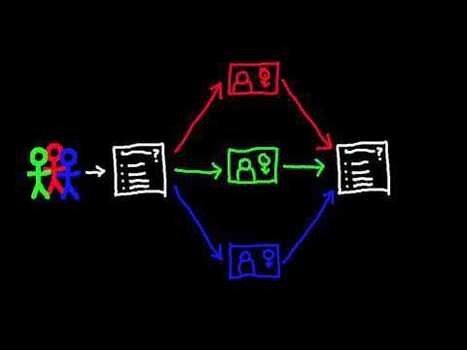


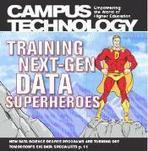




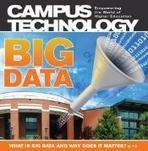
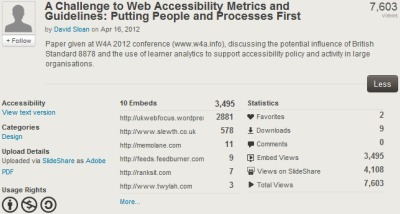


![Learning Analytics: Leveraging Education Data [Infographic] - AvatarGeneration | Learning Analytics, Educational Data Mining, Adaptive Learning | Scoop.it](https://img.scoop.it/tx682spz0vM-pibCWpSY3jl72eJkfbmt4t8yenImKBVvK0kTmF0xjctABnaLJIm9)
